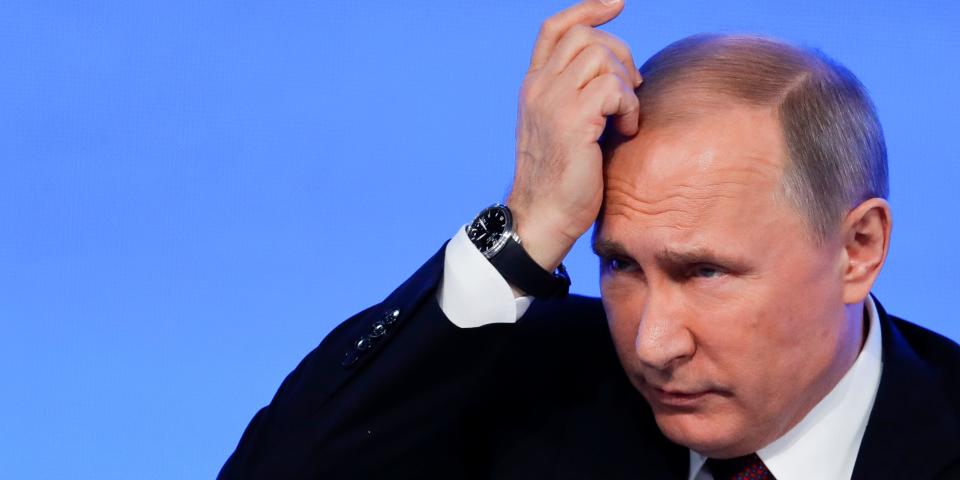Russia's oil exports plunge on EU price cap and latest round of sanctions

Russia's oil exports have plunged amid the latest round of western sanctions.
According to data from Kpler, Russian seaborne oil shipments fell 16% on Tuesday.
Russia's central bank has called the sanctions "new economic shocks" that could derail the economy.
Russia's oil exports have plunged amid the European Union's price cap on Russian crude and the latest round of sanctions, squeezing revenues for Moscow's wartime economy.
According to data from the analytics firm Kpler, Russia's seaborne oil shipments fell by 16%, or about half a million barrels per day on Tuesday this week. TankerTrackers.com, another analytics site, recorded an even steeper 50% drop in daily barrel shipments, largely due to a fall in shipments headed Russia's Black Sea and Baltic ports, which transfer oil to Europe, the Wall Street Journal reported.
The decline comes shortly after the EU ban on Russian seaborne oil imports kicked into effect and the $60 price cap on Russian oil was imposed. It's a promising sign that the latest round of sanctions have taken an toll on Moscow's war revenue, despite concerns from industry experts that western nations had no way to fully enforce a price cap mechanism, and the measure would fail to have a meaningful impact on energy pricing.
Russia has refused to abide by the price cap and threatened to retaliate against any country that enforces it. The nation could do that in three ways: imposing a price floor, setting a maximum discount level, or slashing western supplies and redirecting its crude flows to its Asia.
But the price cap is giving Russia's Asian allies more bargaining power, allowing them to secure even heftier discounts, some analysts say. One Chinese shipment was sold at a $6 discount, more than three times the premium three weeks ago, traders told Reuters.
Russia's central bank warned that the price cap and the EU oil ban were "new economic shocks" that could batter economy activity in the coming months.
Read the original article on Business Insider

 Yahoo Finance
Yahoo Finance 